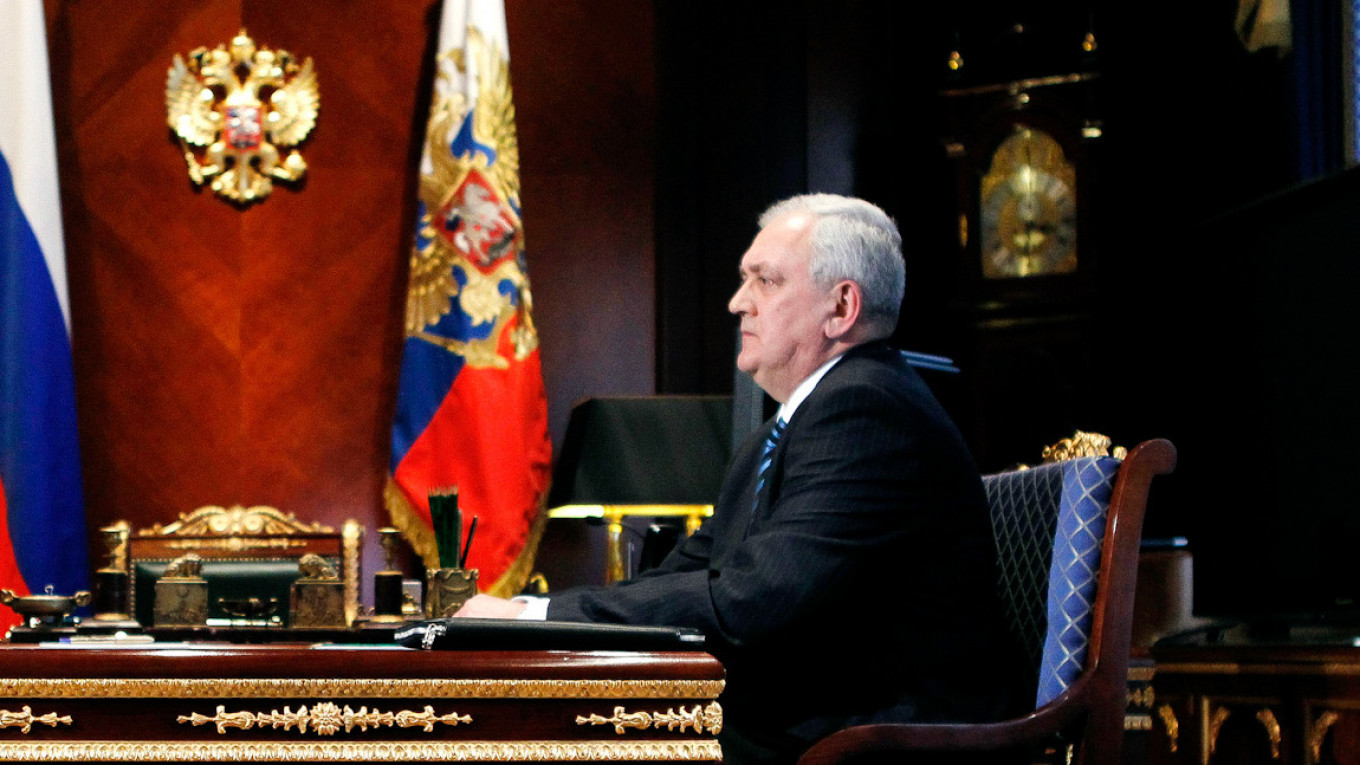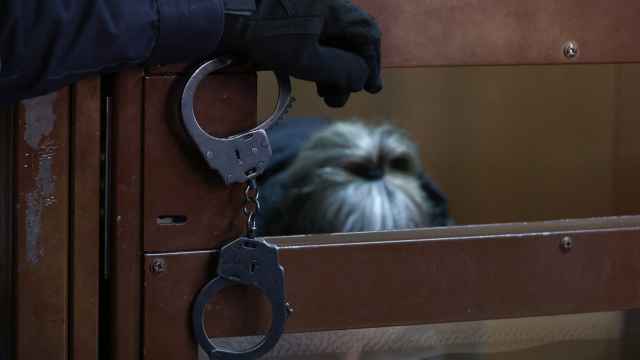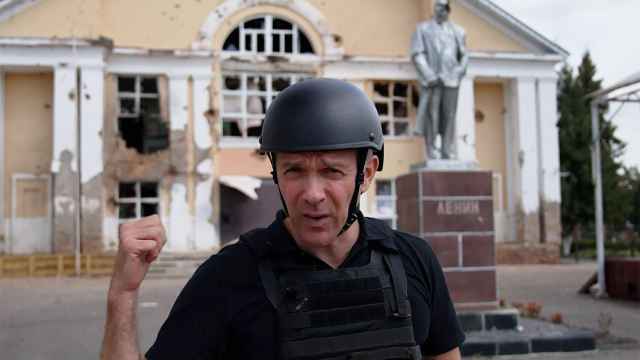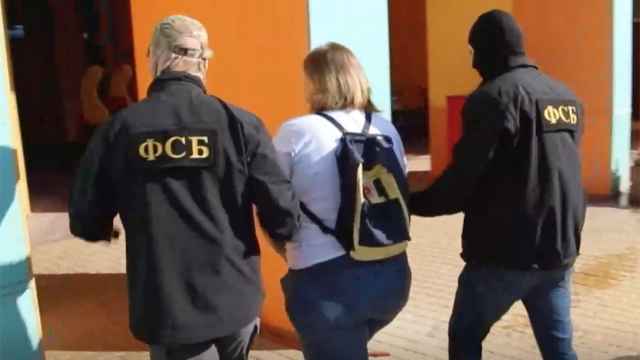On Oct. 22, one of the most powerful men most people haven’t heard of was forced to retire: General Sergei Smirnov, first deputy director of the Federal Security Service (FSB). The decision on who replaces him will probably set the tone for the service’s evolution in the remaining years of the Putin era, and the offhand way this veteran was dismissed may say something even about the Navalny case.
Technically, Smirnov was 70 as of 10 days before, and thus had reached the age limit for service. Technically, any such retirement is marked by a dismissal decree from the president. (People often get excited and start talking about ‘purges’ when another such batch of dismissals appears.)
However, it is possible for a well-regarded silovik to stay relevant longer. Indeed, Putin often seems to cling on to trusted underlings longer than they might like: Evgeny Murov, former head of the Federal Protection Service (FSO) spent five years petitioning to retire before Putin agreed.
It would have been possible to transfer Smirnov to the Security Council secretariat or other space in the Presidential Administration, and by some accounts, Smirnov himself had been petitioning for such a transfer.
While it is still possible he will find some sinecure, at present this is a noteworthily blunt dismissal of a man who had become a pivotal figure within Russian security politics, and whose replacement will say much about their future direction.
First among equals
Sergei Mikhailovich Smirnov was a consummate security officer. Born in Chita in 1950, his family moved to Leningrad when he was a child. He later attended school alongside Boris Gryzlov and Nikolai Patrushev, respectively former interior minister and FSB director (and in Patrushev’s case, current Security Council secretary). In 1975, he joined the KGB and the early part of his career was spent in the Leningrad region KGB and then FSB.
As such, while not a personal friend of Vladimir Putin’s, he was definitely one of his Leningrad security clique. When Putin was made director of the FSB in 1998, Patrushev became his deputy and Smirnov moved to Moscow. He quickly acquired one of the key positions within the agency: head of the Internal Security Directorate (UVB), the watchdogs’ watchdog.
In 2000, he became a deputy director of the FSB, then after a brief stint as head of the St Petersburg FSB directorate, in 2003 he returned to Moscow as first deputy director. He had never really relinquished control over the UVB, but his remit now included a range of powerful directorates: Military Counterintelligence (UVKR), the Economic Security Service (SEB) and the Service for the Protection of the Constitutional Order (SZKSiBT).
To put it very bluntly, SEB granted him massive opportunities for enrichment, SZKSiBT — as essentially the main weapon against any opposition to the Kremlin — gave him political muscle, and his grip on the UVB provided him with personal security.
It is perhaps no wonder that he was considered the de facto second in command of the FSB, and would deputize for Director Alexander Bortnikov when he was out of the office.
Growing pressure
That Smirnov would likely leave the FSB this year was anticipated, not just because of his age but his health. He had reportedly had a stroke, and was spending more time in FSB sanatoria and less in the Lubyanka. Predictable behind-the-scenes tussles had begun to replace him, or at least cherry-pick from his portfolio. (UVKR, in fairness, is neither especially prestigious not lucrative.)
Scandals and power struggles went together. SEB in particular was becoming more and more notorious, with a series of arrests of high-ranking officers on charges of corruption, money laundering, and extortion.
Last year, Colonel Kirill Cherkalin of its Department K (responsible for the financial sector) was arrested and found to be in possession of 12 billion rubles ($157 million), suggesting he was in effect acting as an informal bank and clearing house for criminal proceeds. Cherkalin had long been one of Smirnov’s particular henchmen, which had allowed him to ignore the arrival of a new department head, Lt. General Ivan Tkachev. It is no coincidence that Smirnov was in hospital when Cherkalin was arrested.
Smirnov came close to being dismissed then, not least as Bortnikov was trying to clean house within both the SEB and UVB, embarrassed by the extent to which they were also home to cliques of officers virtually on the payroll of powerful figures such as Igor Sechin.
The succession
His survival then was to a large extent down to the lack of an obvious and above all uncontroversial successor. The front-runners such as SEB chief Colonel General Sergei Korolev, his deputy Lt. General Sergei Alpatov and Tkachev himself, all had detractors as powerful as allies. A war of gossip and leaks engulfed them all. Korolev was, his enemies claimed, cosy with the Tambovskaya crime group, and also linked to the powerful Rotenberg brothers. Alpatov’s track record of anti-corruption investigations — within the FSB, Interior Ministry and Investigative Committee — had won him public plaudits but a lot of private enemies. Tkachev was closely tied to Sechin, and especially since the Ulyukaev affair this is enough to rule him out for many.
This matters especially given that Bortnikov himself hits the magic 70 threshold in November 2021, and so this appointment will inevitably also have a bearing on his succession.
According to some accounts, a decision has been made and Putin actually plans to appoint someone from the FSO, both to break the deadlock and also in the hope that this helps re-establish greater control over an agency whose loyalty to the Kremlin seems increasingly secondary to its self-interest.
There is even a suggestion that Bortnikov might directly be replaced by former FSO deputy chief Viktor Zolotov, currently head of the National Guard. This would be a controversial and worrying move to say the least — not least, within an FSB that looks down on him as a thuggish enforcer — and is probably unlikely.
Nonetheless, that this is even being discussed, along with Zolotov’s appointment to head the new Rosgvardiya and the abortive attempt to make FSO bodyguard Alexei Dyumin head of the GRU (military intelligence), does demonstrate Putin’s continued reliance on his personal security guards as a cadre of trusted proxies.
As the president himself seems more and more insulated from the day-to-day management of the country, and perhaps uncomfortable with the degree to which the wilfulness and greed of his elite is no longer a guarantee of their loyalty, he has to look more to his bodyguards, aides and bag-carriers for a new cadre of loyalists.
Of course, they all live on a knife-edge, expected to take risks for the boss but, unlike his personal friends, disposable if they fail. One possible explanation for the relative indignity of Smirnov’s departure lies in his oversight of SZKSiBT, the service which may have had responsibility for the embarrassingly failed attempt on Alexei Navalny’s life. This may have been one embarrassment and one failure too many.
Uncertainty could not last forever. And the president could no longer fail to make a decision. And, as our sources have shared, none of the candidates whose name has appeared in the wars of recent years will not be appointed as the first deputy director of the FSB. This is typical for the president, as well as the fact that most likely the coveted position will be taken by a native of the FSO.
A Message from The Moscow Times:
Dear readers,
We are facing unprecedented challenges. Russia's Prosecutor General's Office has designated The Moscow Times as an "undesirable" organization, criminalizing our work and putting our staff at risk of prosecution. This follows our earlier unjust labeling as a "foreign agent."
These actions are direct attempts to silence independent journalism in Russia. The authorities claim our work "discredits the decisions of the Russian leadership." We see things differently: we strive to provide accurate, unbiased reporting on Russia.
We, the journalists of The Moscow Times, refuse to be silenced. But to continue our work, we need your help.
Your support, no matter how small, makes a world of difference. If you can, please support us monthly starting from just $2. It's quick to set up, and every contribution makes a significant impact.
By supporting The Moscow Times, you're defending open, independent journalism in the face of repression. Thank you for standing with us.
Remind me later.








